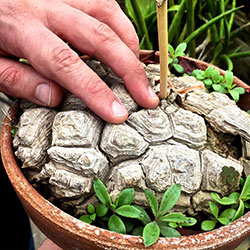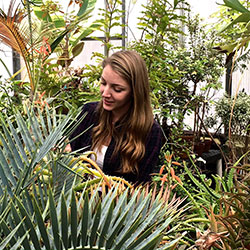
Horticultural Therapy (HT) is an ancient practice, but a rather new profession. HT has been defined as the use of plants and plant-based activity for the purpose of human healing and rehabilitation." The “roots” of horticultural therapy were established in the early 19th century by Dr. Benjamin Rush, a physician considered to be the first psychiatrist, and signer of the Declaration of Independence. Dr. Rush observed and documented the benefits of working with plants for his patients at his Philadelphia clinic. His efforts led to the use of Horticultural Therapy as a treatment option for individuals with mental illness, however, HT programs today are now commonplace at many different facilities in this country and abroad.

An increasingly large body of research attests to the unique values of horticulture as a therapeutic modality for people with physical, mental, emotional, and social disabilities, as plants are non-discriminating and non-threatening, and anyone can be successful utilizing this medium. Plants and horticultural activity have unique qualities that lend themselves well to the rehabilitation of individuals with disabilities, as plants will respond to anyone providing care, no matter the person’s age or intelligence, race, religion, and cultural background. In addition, studies show that success with plants can lead to successes in other aspects of life, which is important to individuals recovering from health conditions or adjusting to disability.


